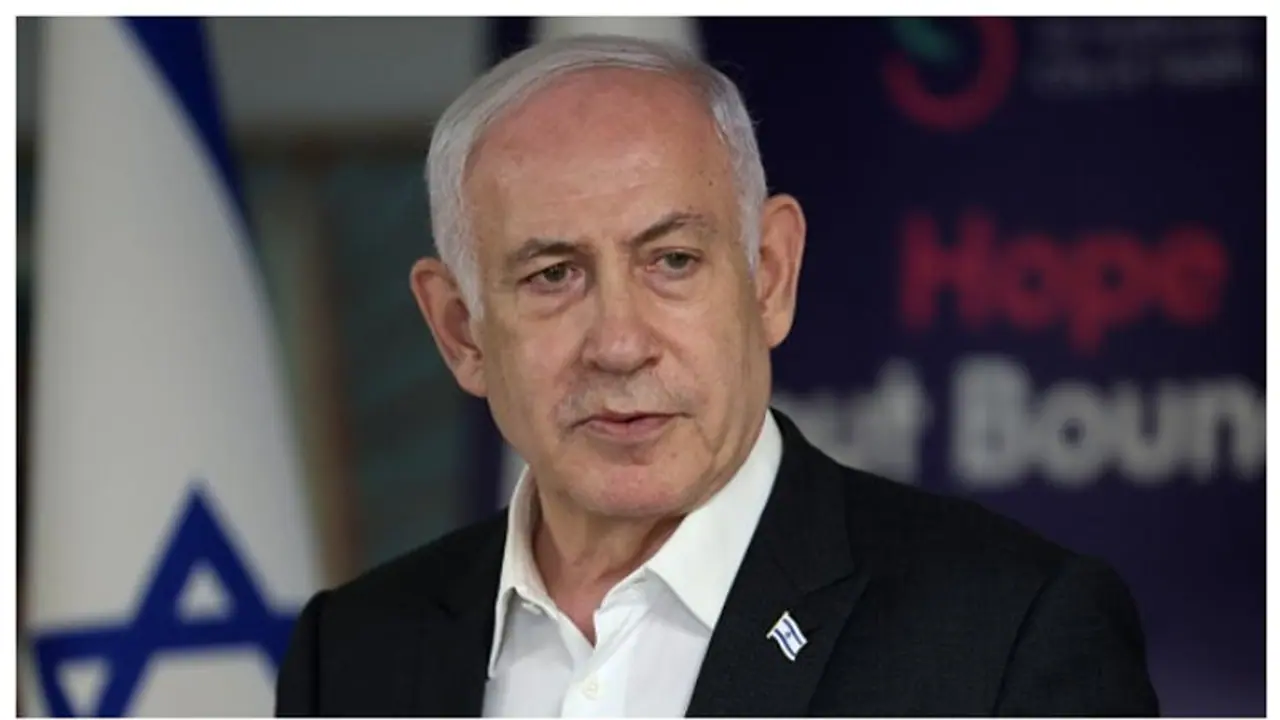Israeli Prime Minister Benjamin Netanyahu on Monday declared that Israel is "changing the balance of power" on its northern border with Lebanon, as airstrikes intensified across southern and eastern Lebanon.
Israeli Prime Minister Benjamin Netanyahu on Monday declared that Israel is "changing the balance of power" on its northern border with Lebanon, as airstrikes intensified across southern and eastern Lebanon, leaving at least 182 dead and over 700 injured. Speaking after a wave of Israeli military operations against Hezbollah, Netanyahu emphasized that Israel would not wait for threats to materialize but would act preemptively to neutralize dangers.

“For those who have not yet understood, I want to clarify Israel’s policy,” said Netanyahu in a video statement, as Israeli jets pound southern Lebanon and the Beqaa Valley. “We do not wait for a threat, we anticipate it. Everywhere, in every theater, at any time.”
“Whoever tries to hurt us, we hurt him even more,” he added. “I promised that we would change the security balance, the balance of power in the north. This is exactly what we are doing. We are destroying thousands of missiles and rockets aimed at Israeli cities and Israeli citizens.”
The prime minister's comments came in the wake of several aerial strikes aimed at Hezbollah’s military infrastructure. According to Israeli defense officials, these strikes targeted what they described as “thousands of missiles and rockets” stored in civilian areas and prepared for launch into Israeli cities. Netanyahu acknowledged that the coming days would be difficult, urging citizens to follow safety protocols.
Lebanon’s health ministry reported that the Israeli strikes resulted in at least 182 deaths and 727 injuries, including women, children, and medical personnel. The attacks focused heavily on southern and eastern Lebanon, regions where Hezbollah is known to have strongholds. The ministry also warned that the death toll could rise as rescue operations continue.
The strikes followed weeks of intense exchanges of fire between Hezbollah militants and the Israel Defense Forces (IDF). Hezbollah has responded by launching a barrage of rockets into northern Israel, prompting the evacuation of over 60,000 Israelis from the border region.
While the aerial campaign escalated, an Israeli military official clarified that there were no immediate plans for a ground operation in Lebanon. The source, speaking to the Associated Press on condition of anonymity, indicated that the focus remains on airstrikes aimed at curbing Hezbollah’s ability to launch attacks. The official added that Israel’s strategy is focused on degrading Hezbollah’s military capabilities rather than engaging in direct incursions across the border.
Hezbollah, for its part, has vowed to continue its attacks, claiming that the rocket barrages into Israel are a direct response to the Israeli airstrikes. The group remains deeply entrenched in southern Lebanon, with much of its military infrastructure embedded in civilian areas—a tactic Israeli officials say endangers the local population.
Israeli government spokesperson David Mencer echoed this sentiment, stating, “Hezbollah endangers the people of Lebanon by using them as human shields.” He reiterated that civilians living near Hezbollah weaponry sites should evacuate immediately, warning of further Israeli strikes on Hezbollah targets in the coming days.
IDF spokesperson Daniel Hagari provided additional details, revealing that Israeli forces had struck over 800 Hezbollah targets across Lebanon since the operations began. These targets, Hagari said, include strategic weapons stockpiles hidden in residential buildings. He warned residents of eastern Lebanon, particularly in the Beqaa Valley, to distance themselves from any areas storing Hezbollah weapons.
Hagari also highlighted Israel’s broader security goals, stating that the IDF was working to neutralize Hezbollah's ability to conduct further operations against Israeli territory. “We are systematically broadening our strikes against Hezbollah,” he said, signaling the possibility of further escalation.
The strikes and subsequent rocket fire have led to significant displacement on both sides of the border. While northern Israeli towns have been evacuated, Lebanon’s interior ministry is preparing schools to act as temporary shelters for civilians fleeing the violence. International humanitarian organizations have called for restraint, urging both parties to protect civilian lives.
